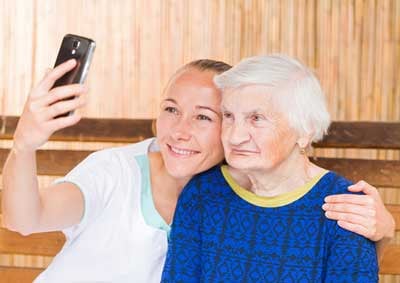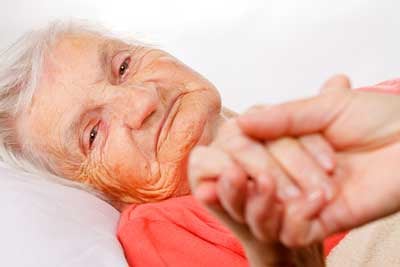 Many people associate caregiver burnout only with family members who serve as primary caregivers for other family members. The reality is, however, that caregiver burnout can affect the most professional of hired caregivers at any time. What can you do as a professional caregiver to protect yourself from the harmful effects of caregiver burnout?
Many people associate caregiver burnout only with family members who serve as primary caregivers for other family members. The reality is, however, that caregiver burnout can affect the most professional of hired caregivers at any time. What can you do as a professional caregiver to protect yourself from the harmful effects of caregiver burnout?Understanding What Caregiver Burnout Is
The first step to preventing caregiver burnout is to understand what it is. According to WebMD, caregiver burnout is "a state of physical, emotional, and mental exhaustion that may be accompanied by a change in attitude -- from positive and caring to negative and unconcerned."
Burnout typically results from expending yourself in behalf of someone else to the point of detriment to your own health and well-being. Some common symptoms of caregiver burnout include:
- Withdrawal from friends and family
- Loss of interest in activities previously enjoyed
- Feeling blue, irritable, hopeless, and helpless
- Changes in appetite, weight, or both
- Changes in sleep patterns
- Getting sick more often
- Feelings of wanting to hurt yourself or the person for whom you are caring
- Emotional and physical exhaustion
- Excessive use of alcohol, drugs, or sleep medications
Why Professional Caregivers Are at Risk
Professional caregivers may be especially vulnerable to burnout. Why? The answer rests largely in why you chose to become a caregiver in the first place. Generally, caregivers choose to become caregivers because they have compassion and empathy for people in need of care. They are moved by their own kindness to extend help to others. That is an admirable quality.
And yet, it is this same quality that can make it difficult for a professional caregiver to exercise appropriate balance when caring for others. You may want so much to help your clients that you begin to neglect your own well-being. This is a recipe for disaster.
Additionally, the sad fact is that, as a healthcare worker, you are exposed constantly to the pain and suffering of others. You may bear witness to the decline in mental and physical health of your clients day after day. This can lead to caregiver burnout and its companion, compassion fatigue.

Self-Help for Caregiver Burnout
If you identify signs of caregiver burnout in yourself, there are some actions you can take to head off a full-blown case of burnout. MyCNAJobs.com advises caregivers to remember their ABCs. The article gives these tips "by the letters":
- A - Ask for help. Help can come from someone in the agency where you work, a close friend in whom you can confide, or even a babysitter who will watch your kids for a few hours after work so that you can spend some time just decompressing.
- B - Be selfish occasionally. There is nothing wrong with doing something just because it makes you happy. Read a book, go to a movie, or treat yourself to a spa day or fine dining experience. Plan things great and small that you know will make your day, and then be sure to do them. Taking time to nurture your own soul will help you ward off burnout and you'll be an even better caregiver in the long run.
- C - Create opportunities for appreciation that do not include any caregiving responsibilities. Take time each day to reflect on things for which you are grateful. Even something as simple as taking a moment to enjoy the feel of sunlight on your face can give you added protection from burnout.
- D - Do get an appropriate amount of sleep. As a caregiver, you know that sleep rejuvenates your clients both physically and mentally. It will do the same for you.
- E - Exercise regularly. Exercise keeps your energy levels up and releases a flood of positive, feel-good chemicals in your body and brain. Even if it is for just a few minutes each day, the effects of exercise can be significant.
Getting Help from Your Homecare Agency
Working with a good homecare agency can also help. A good agency will provide you with the tools and training you need to successfully care for clients while also keeping an eye on your own health. Many agencies offer flexible hours, in-house counselors, and daily or weekly "huddle" sessions where staff members can express concerns and work through work-related issues.
If you would like to know more about how a homecare agency can help you avoid caregiver burnout and provide quality care to clients, contact us today. We welcome your call.

